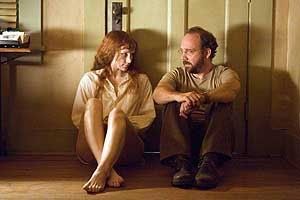
How many times have you heard a story regarding the creation of a perfume and in the end realised it must be a fabrication?
From the almost bordering to the homeric notion of "genius through incapacitation" of Coco Chanel picking up the specific batch of Ernest Beaux's No.5 while having a severe headache to another tale ~ according to which Beaux's assistant was the culprit behind the revolutionary amount of aldehydes poured by accident into a vat of jus ready for the making that resulted in a new category of perfumes.
From the melancholic Mitsouko name supposedly meaning "mystery" in Japanese (well, it means "child of light", if you want to know) and the tale that Jicky was the nickname of an unfortunate coup de foudre that Aime Guerlain harbored for an English girl (in reality it was the nickname of his nephew Jacques) to the couturier Marcel Rochas commissioning Femme as an exclusive wedding present for his great beauty of a young bride, which proved to be such a short-lived exclusive that the following year he launched it publicly...
And cut into the modern classic that is Angel, commissioned to smell like the "the caramel scent of sugared apples, the sugary notes of candy floss and the smell of the fun fair" by Strasbourg-born Thierry Mugler. (You can read an interesting article brought to my attention on the gourmand scents mentioning this byclicking here).
Or even the references made by consumers when they talk about a favourite or just plain hip of-the-moment perfume they have fallen for: Remember how Madona in the mid-90s talked about how she chose Fracas, among many others, because it reminded her of her dearly beloved mother who used to wear it, just when the whole chic crowd was rediscovering this forgotten classic and had similar stories to recount?
Perfume needs a tale behind it to sell, it seems. Every single one of the classics has a tale behind it. Every single one of those tales has some element of fantasy. It has to, because perfume seems to be aspirational: people want to buy into a fairy tale, an illusion, a flight of fancy that would make them feel happier, more elegant, more glamorous, more alluring, certainly more attractive. At its basest level perfume is used as an element of attraction. There is an inordinate amount of questions on which perfume would draw in more people of the opposite sex on perfume fora. It practically pops up every day. It also makes column inches in advertorials and articles in the press, especially when it's time for the mega-launches before the Christmas season.
However, perfume also serves other purposes: it signals a certain persona behind it (and this is not used in the Bergman sense) that is projected through the use of something upscale as an emblem of wealth, societal status, taste and cultivation. This is the reason why when giving gifts of perfume of brands that are considered upscale the face of the recipient lights up significantly more than when presenting them with an equal -monetarily speaking- offering of an unknown brand. They feel like they "belong" and that they are validated when presented with said offering, same as when they whip up the credit card to do it themselves. And people mostly want to "belong".
A variation of the latter nevertheless is the undisciplined spirit of people who want to be perceived as breaking the mould, as forming their own individual fashions and opting for something that would set them apart. In a world that is crammed with people smelling the same, the olfactory ID of a different scent acts much like the shoulderpads of the 80s, creating a little distance and hauteur that allows people to mark their own territory. And this is where the ever expanding market of "niche" perfumes falls. Based on the premise that limited ditribution creates exclusivity and that limited advertising saves money for better-quality ingredients, accounting for a better effect, as well as some leeway of an artistic vision that is not as aysterely restrained by "suits" in marketing boards, niche brands opt to play the game by their own rules.
But that is not meant to imply that they do not engage in their own literature of fantasy. Ambre Sultan is supposed to have been inspired by lumps of vegetal amber found in Moroccan souks and served as an inspiration to Lutens to come up with a perfume that has become infamous due to its perceived naughty undertones that to some smell like lady bits. Or think how Annick Goutal reading "Memoirs of Hadrian" by M.Yourcenar envisioned the young philosopher emperor smelling like a crystalline mix of Sicilian lemons and cypress resulting in Eau d'Hadrien. Or yet the very romantic tale of Antonia Ballanca Mahoney recounting the story of her grandfather and a Sicilian song named Tiempe Passate (=time passes) that served as the inspiration behind the homonymous fragrance of austere cedar and powdery orris.
Are those new tales true? I guess it doesn't matter too much. And sceptical readers will have already drawn their conclusions. But it's nice while they last. In a pedantic world they help us dream a bit.
Pic is from the film "Lady in the water", a fairy tale about how fairy tales might help us; courtesy of athinorama.gr
.jpg)






No comments:
Post a Comment
Type your comment in the box, choose the Profile option you prefer from the drop down menu, below text box (Anonymous is fine too!) and hit Publish.
And you're set!